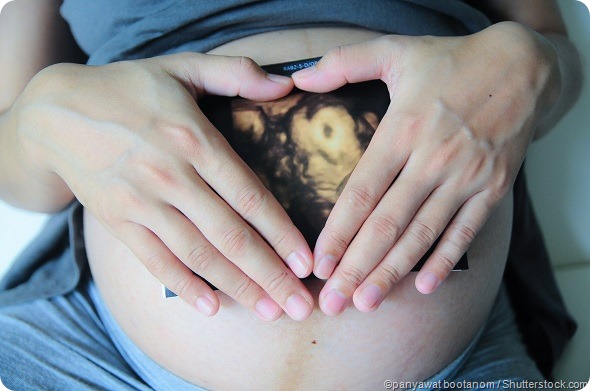A recent study conducted by researchers at the University of Cambridge showed that obese women who develop gestational diabetes have a five-fold greater risk of excessive foetal growth at 6 months gestation. Furthermore, it revealed that such excessive growth starts before women are screened for gestational diabetes.
Gestational diabetes is a temporary condition that affects 1 in 5 women during pregnancy. It occurs when the body cannot produce sufficient insulin to maintain normal blood glucose levels. Women who are obese are more likely to develop gestational diabetes than other women. Persistent high blood glucose levels can have serious health consequences, including heart damage. In addition, during pregnancy it can lead to the foetus growing more than normal. The excessive growth of the foetus can put the mother at risk during childbirth and increase the risk of the baby developing obesity and diabetes later in life.

Women are screened for gestational diabetes around 8-12 weeks into a pregnancy. Where the condition is identified, it can be controlled through a combination of diet and exercise or, failing that, with medication. Women at higher risk of developing gestational diabetes, eg, those who are obese, undergo a further , more comprehensive diabetes test around 28 weeks.
Researchers at the University of Cambridge collected ultrasound scans from over 4,000 first‑time mothers to assess foetal growth.
The results showed that in women who were subsequently diagnosed with gestational diabetes the foetuses grew excessively between 20 and 28 weeks. This means that the foetus will already be oversized at the time gestational diabetes is diagnosed, since the test is not undertaken until week 28.
Furthermore, even in the absence of gestational diabetes, women who were obese, were twice as likely to have an oversized foetus at 28 weeks. This is not surprising as it is already known that maternal obesity is a risk factor for childhood obesity.
Women who were obese and developed gestational diabetes were five times more likely to have excessive foetal growth at week 28 than those who did not.
Dr Ulla Sovio from the Department of Obstetrics and Gynaecology at the University of Cambridge, commented:
Given the risk of complications for both mother and child from gestational diabetes, our findings suggest that screening women earlier on in pregnancy may help improve the short and long term outcomes for these women. Early screening may be particularly beneficial for obese women, as foetal growth is already abnormal by 20 weeks among these women.”
These new data indicate that current screening for gestational diabetes may take place too late during pregnancy to prevent lasting health impacts on the offspring. Clinical trials are thus needed to assess the effects of earlier screening, both on the outcome of the pregnancy and the long term health for the offspring.
Sources